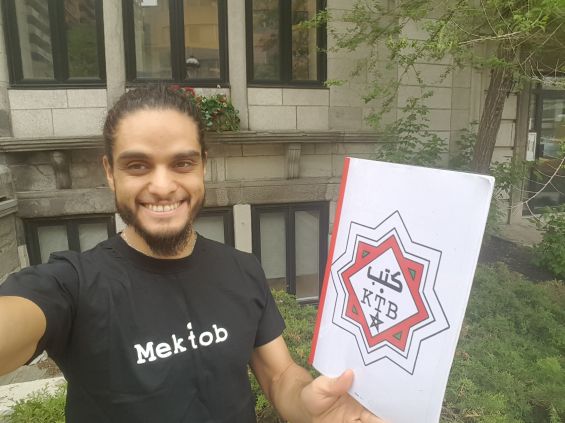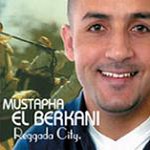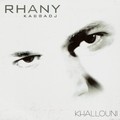For Tariq Daouda, Moroccan language is not just a random dialect that has no rules. It is a language that can be understood, learned and studied. In 2009 he created KtbDarija, a concept that allows illiterate people write and read in only two weeks. For that to be possible, along with a team in Canada, Tariq developed a chart with sounds and letters, a keyboard and a dictionary all to fight illiteracy back home and help Moroccans abroad speak the language of their ancestors.
Tell us more about yourself ?
I am a PhD student at the Institute for Research in Immunology and Cancer (IRIC) which is affiliated to the University of Montreal. I am 31 and I have been born and raised in Rabat then I moved to Canada for studies in 2007.
What is the idea behind KtbDarija, and when did it start ?
It all started in 2008, back in the time I was interested in the problem of illiteracy in Morocco and I was reading articles all over about it. At some point I realized that children are not learning the language they speak at home so I started doing research on Moroccan and Standard Arabic.
I came to the conclusion that these are different languages in the sense that they don’t have the same grammar, phonology and rules. There are some sounds in Darija that do not exist in Classical Arabic and vice versa. So I thought of creating a standard for writing Moroccan Arabic that would stand as a pedagogical tool for helping children read and write using Latin letters. The idea behind it hence, is to allow people, most particularly children, write Darija as they have already acquired the grammar and familiarize with the concept of writing based on the rule that says : One letter in Arabic equals one letter in Latin and phoneme.

How did you manage to develop this concept ?
I first started working on the concept of KtbDarija alone and then later in 2009 a friend of mine called Nassim Reguragui joined to help as he was studying linguistics. We have done research together and realized that we need to develop a way of helping illiterate people read and write Moroccan Arabic in only two weeks. We worked on building a constructive language of which every sound equals one letter. It was for us the easiest way to learn a language… So we took letters that already existed and augmented the alphabet in Arabic and the letters that were not in either French or Classical Arabic.
What were the challenges that you were faced with at the beginning ?
When we started promoting KtbDarija, people found it hard to believe that Darija is actually a language and not a random dialect. They think that it has no rules which is not true since back home we manage to understand each other and communicate. But, I believe that things have changed nowadays as Darija is used in advertisements, and TV shows.
Have you worked on creating a database for Moroccan Arabic rules ?
Yes we have tried to do it by working on Darija’s grammar. We have also tried to create a dictionary but at some point we had to abandon some these projects because none of us was in Morocco. All in all, we have concentrated on the phonological aspect and the writing of Darija.
Is being away from home what really pushed you to think of such an initiative ?
Being away from Morocco helped me because I was away from home. It is not just about the language but also about the history of my country.

Do you think KtbDarija would help Moroccans living abroad learn the language of their parents ?
Our project has three major goals, as I first mentioned it aims at helping illiterate people and children learn how to read and write but it also holds the objective of making Canadians with Moroccan origins read and write the language of their parents. KtbDarija gives them the chance to write Darija using Latin letters because the first obstacle you encounter when learning a language is memorizing the alphabet and sounds. If we give them a way of learning and writing Arabic with letters that they already know it should be easier for them to get it.
What are KtbDarija’s future plans ?
We will soon start courses of Darija here in Canada for people who are originally from Morocco and also for those who want to visit the country and learn about the culture. There is also the keyboard, it is not finished yet but adjustments should be brought to it.




 chargement...
chargement...












